Search Results
Search
Filter results
Advanced Filters
Your search returned 883 Solutions
-
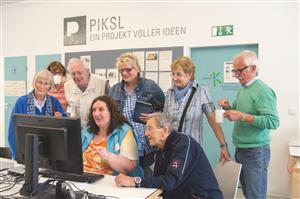
Persons with learning difficulties working as IT trainers
Through this project people with learning difficulties use their IT knowledge to train senior citizens living in their neighbourhood. The concept has been developed by people with learning difficulties themselves. In addition to having employment, it provides them with the possibility to earn respect and recognition.
PIKSL - Living in the community gGmbH, Germany -
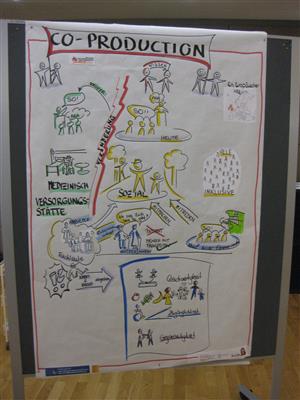
Training carers, family members, and staff via a web platform
The e-learning platform AGID enables professional assistants and family members to inform themselves about personal-centred care for elderly people with intellectual impairments. By 2016 it consisted of six modules covering 900 pages of content and approximately 1,000 people of the target group were reached.
APEMH - Association of Parents of Mentally Handicapped Children, Luxembourg -
Using technology in the classroom to support all students
The focus of the project is to increase knowledge among students, teachers, and other involved professionals on how the use of innovative technology in the classroom can facilitate participation and performance. 215 students with disabilities also received individual support. An accompanying study confirmed significant improvements.
Swedish Agency for Disability Coordination, Sweden -
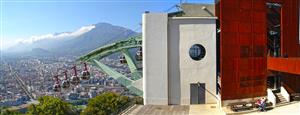
The Accessibility Strategy of Grenoble
In 2015 Grenoble developed a nine-year plan to make the city fully accessible – including all areas of public institutions, schools, sports and leisure facilities as well as the entire public transport system. The Accessibility Agenda is based on Universal Design principles and aims to cover all 49 communities by 2024.
Grenoble-Alpes Métropole Community, France – Municipality of Grenoble – L’Agenda d’accessibilité programmée, France -
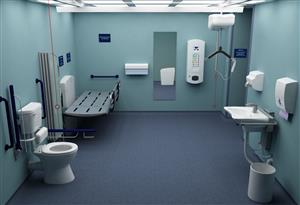
A Changing Places toilet provides equipment, space and facilities (including hoist and adult-sized changing bench) for persons with disabilities who need assistance and cannot use standard accessible toilets. Changing Places toilets should be provided in addition to standard accessible toilets.
Changing Places include special equipment such as a height-adjustable changing bench and a hoist, offer adequate space in the changing area for up to two carers, and provide a centrally-placed toilet with room on either side for the carers. There are also mobile Changing Places toilets available to rent for large and small events.
Muscular Dystrophy UK, Changing Places Consortium, Accessible and spacious toilets in public places, United Kingdom -
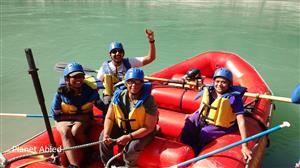
A ‘buddy’ programme for travelers with and without disabilities
Planet Abled provides accessible travel solutions and leisure excursions for people with various disabilities. It also matches people of different disabilities and offers a travel buddy programme in which (previously trained) people without disabilities and those with disabilities travel together, both as paying customers.
Planet Abled, India -
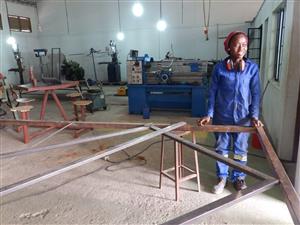
Making training centres accessible
With the advice of Light for the World, Young Africa Mozambique has adapted their already existing training schedules by reducing the barriers to enable young people with disabilities to study with their peers. Two new accessible hostels were constructed to accommodate 128 young people, one existing hostel was renovated.
Young Africa, Mozambique -
The Atatürk Airport Istanbul was made accessible through a holistic approach: tactile surfaces added; sanitary facilities renovated; induction loop systems implemented. Strong emphasis was laid on the training of the airport employees.
The specific needs of persons with disabilities were taken into consideration in order to make the Atatürk Airport accessible. A holistic approach was chosen, not limiting itself to the transformation of the physical space but also aimed at creating awareness within the organisation as well as amongst the general public.
TAV Istanbul, Airport accessibility for everyone, Turkey -
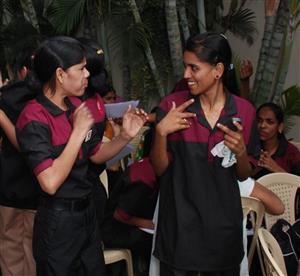
Fighting unemployment from two sides: with training centres and by influencing legal frameworks
4J sets up centres as a public-private partnership to provide vocational training for young people with disabilities from rural areas and places them in companies. Due to State Government participation in the programme, Y4J has been able to influence the legal framework towards pro-disability policies.
Youth4Jobs Foundation, Centre for Persons with Disability Livelihoods (CPDL), India -
ColorADD is a universal graphic code whose mission is to enable the colourblind to identify colours. It supports the social integration of persons with colour vision deficiency.
ColorADD transforms colour to a graphic code that indicates the colours on textiles, medicines, educational games, coatings, paint material etc. Based on three primary colours, the symbols are related to each other and the entire colour pallet graphically identified, for example, yellow and blue make green.
ColorADD Miguel Neiva & Assoc. Lda., Colour identification system for the colourblind, Portugal
- Page 1
- Page 2
- Page 3
- Page 4
- Page 5
- Page 6
- Page 7
- Page 8
- Page 9
- Page 10
- Page 11
- Page 12
- Page 13
- Page 14
- Page 15
- Page 16
- Page 17
- Page 18
- Page 19
- Page 20
- Page 21
- Page 22
- Page 23
- Page 24
- Page 25
- Page 26
- Page 27
- Page 28
- Page 29
- Page 30
- Page 31
- Page 32
- Page 33
- Page 34
- Page 35
- Page 36
- Page 37
- Page 38
- Page 39
- Page 40
- Page 41
- Page 42
- Page 43
- Page 44
- Page 45
- Page 46
- Page 47
- Page 48
- Page 49
- Page 50
- Page 51
- Page 52
- Page 53
- Page 54
- Page 55
- Page 56
- Page 57
- Page 58
- Page 59
- Page 60
- Page 61
- Page 62
- Page 63
- Page 64
- Page 65
- Page 66
- Page 67
- Page 68
- Page 69
- Page 70
- Page 71
- Page 72
- Page 73
- Page 74
- Page 75
- Page 76
- Page 77
- Page 78
- Page 79
- Page 80
- Page 81
- Page 82
- Page 83
- Page 84
- Page 85
- Page 86
- Page 87
- Page 88
- Page 89